#stephen r. lawhead
Explore tagged Tumblr posts
Text
Beginning my reread of The Sword and the Flame, book three of the dragon king trilogy. I cannot help but feel with the distinct lack of mention of wives or lady-loves, and the fact they are rarely mentioned without each other, that Theido and Ronsard are a couple.
2 notes
·
View notes
Text
My Top 20 Favorite 2022 Reads
Today I’m excited to (finally) get around to sharing my top favorite books I read in 2022! Top 5: Best of the Best Dana Illwind and War’s Shadow (by Arthur Daigle) — Dana Illwind, #2 (Read my full review.) My top-favorite read of last year! This series makes it onto a very select list of my top-favorite books of all time, and I enjoyed this one just as much as book one–maybe even more. More…

View On WordPress
#AmReading#Book Review#Books#Bryn Shutt#C.M. Banschbach#Favorite Books#Favorite Books of the Year#Kickstarter#Kyle Robert Shultz#Mini Reviews#Stephen R. Lawhead#Tara Grayce#Treasure Planet
0 notes
Text
So we've got the A plot, which starts off with the classic '(male) protagonist stumbles into a world that's dramatically more than he ever knew about' and proceeds to whirl him through several set pieces and give him as little explanation with as many words as possible. He's pretty hapless and takes very few actions other than to wander off when he's explicitly told not to.
And then the B plot: his (probably to-be-ex-) girlfriend is stranded in 17th-century Bohemia. After screaming for a while she goes "okay, nobody's coming to help, I'll have to figure out how to deal with this on my own, so she goes and finds a local willing to help her and founds the first coffee shop Prague has ever heard of. She's extremely proactive and forceful of personality.
It's really no wonder I find her chapters more appealing to read than his.
3 notes
·
View notes
Video
youtube
#ThePendragonCycle | The Week of Battles | Production Diary 2
I’m actually crying, this is one of my favourite book series and this looks so good and I’m so excited and i just 😩🤪🥹😭
#youtube#the pendragon cycle#stephen r lawhead#daily wire#TALIESIN#MERLIN#CHARIS WAS IN THE LAST VIDEO SHE LOOKED AMAZING
5 notes
·
View notes
Text

Oh my gosh as someone learning Latin and Spanish this is freaking hilarious but so true honestly
#king raven#king raven trilogy#the king raven trilogy#robin hood#tuck#stephen r lawhead#stephen r lawhead tuck
3 notes
·
View notes
Text
The Hollow Kingdom Trilogy by Clare B. Dunkle (2003-2005)
For thousands of years, young women have been vanishing from Hallow Hill, never to be seen again. Now Kate and Emily have moved there with no idea of the land's dreadful heritage--until Marak decides to tell them himself. Marak is a powerful magician who claims to be the goblin king, and he has very specific plans for the two new girls who have trespassed into his kingdom . . .
Healer and Seer by Victoria Henley (2000-2004)
Legend states that there exists a mighty sword that makes its possessor invincible to his enemies. But there is a curse on anyone who lifts the sword for conquest. King Kareed of Archeld goes after this sword anyway, winning it from the King of Bellandra. When he returns home from battle, he brings his daughter, Princess Torina, two special gifts. One is a unique crystal, in which she can view visions of the future. The other gift is the defeated king’s son Landen, who is to be her slave. Torina immediately releases Landen, who becomes a member of the King’s army and her close friend.
But trouble is lurking in the kingdom of Archeld and people are accusing Landen of plotting against the King. Torina refuses to believe he would hurt her family. Then Torina begins seeing deadly visions in her crystal. Can she save her father’s life and the future of her kingdom?
Fire and Hemlock by Diana Wynne Jones (1985)
Polly has two sets of memories...
One is normal: school, home, friends. The other, stranger memories begin nine years ago, when she was ten and gate-crashed an odd funeral in the mansion near her grandmother's house. Polly's just beginning to recall the sometimes marvelous, sometimes frightening adventures she embarked on with Tom Lynn after that. And then she did something terrible, and everything changed.
But what did she do? Why can't she remember? Polly must uncover the secret, or her true love — and perhaps Polly herself — will be lost.
The Medoran Chronicles by Lynette Noni (2015-2019)
Dreading her first day at a new school, Alex is stunned when she walks through a doorway and finds herself stranded in Medora, a fantasy world full of impossibilities. Desperate to return home, she learns that only a man named Professor Marselle can help her... but he's missing.
While waiting for him to reappear, Alex attends Akarnae Academy, Medora's boarding school for teenagers with extraordinary gifts. She soon starts to enjoy her bizarre new world and the friends who embrace her as one of their own, but strange things are happening at Akarnae, and Alex can't ignore her fear that something unexpected... something sinister... is looming.
An unwilling pawn in a deadly game, Alex's shoulders bear the crushing weight of an entire race's survival. Only she can save the Medorans, but what if doing so prevents her from ever returning home?
The Girl With Silver Eyes by Willo Davis Roberts (1980)
Everyone knows that Katie is different. The first thing people notice about her are her shiny silver eyes, but even they are not her most unique feature. If they paid a bit more attention, they might see that, as well as being very clever, she attracts strange activity. She can move her glasses back up her nose without touching them and freak weather seems to follow her around. However, when Katie moves to a new neighbourhood, she begins to realise that she might not be the only one who has the ability to do unbelievable things. Join Katie as she struggles to learn more about her place in two very different worlds. A magical story about a magical girl, with powers almost as sharp as her sensational silver eyes.
The Song of Albion by Stephen R. Lawhead (1991-1991)
From the dreaming spires of Oxford, Lewis Gillies drives north to seek a mythical creature in a misty glen in Scotland. Expecting little more than a weekend diversion, Lewis finds himself in a mystical place where two worlds meet, in the time-between-times--and in the heart of a battle between good and evil. The ancient Celts admitted no separation between this world and the Otherworld: the two were delicately interwoven, each dependent on the other. The Paradise War crosses the thin places between this world and that, as Lewis Gillies comes face-to-face with an ancient mystery--and a cosmic catastrophe in the making.
The World of Riverside by Ellen Kushner (1987-2002)
On the treacherous streets of Riverside, a man lives and dies by the sword. Even the nobles on the Hill turn to duels to settle their disputes. Within this elite, dangerous world, Richard St. Vier is the undisputed master, as skilled as he is ruthless—until a death by the sword is met with outrage instead of awe, and the city discovers that the line between hero and villain can be altered in the blink of an eye.
The Tarot Sequence by K. D. Edwards (2018-present)
Rune Saint John, last child of the fallen Sun Court, is hired to search for Lady Judgment's missing son, Addam, on New Atlantis, the island city where the Atlanteans moved after ordinary humans destroyed their original home.
With his companion and bodyguard, Brand, he questions Addam's relatives and business contacts through the highest ranks of the nobles of New Atlantis. But as they investigate, they uncover more than a missing man: a legendary creature connected to the secret of the massacre of Rune's Court.
In looking for Addam, can Rune find the truth behind his family's death and the torments of his past?
Bardic Voices by Mercedes Lackey (1992-1997)
With the proper schooling young Rune would be one of the greatest bards her world has ever seen. Even if only she knows it. Unfortunately, the daughter of a tavern wench at the Hungry Bear, no matter how talented, doesn't get much in the way of formal training. What she does get is frustrated.
One night, to back up a brag she probably wouldn't have made if she weren't so mad, she went up to play her fiddle for the Ghost of Skull Hill. Everyone knows that no one who has ever gone up Skull Hill has come down again. Not alive, anyway.
But when the ghost appears Rune Strikes a bargain: if the ghost tires of her playing before morning her life is his; if he is still listening when the sun glints over yonder hill she will have earned both life and a sack of silver. Let the music begin...
The Squire's Tales by Gerald Morris (1998-2010)
Life for the young orphan Terence has been peaceful, living with Trevisant, the old Hermit in a quiet, isolated wood.
That is, until the day a strange green sprite leads him to Gawain, King Arthur's nephew, who is on his way to Camelot hoping to be knighted. Trevisant can see the future and knows that Terence must leave to serve as Gawain's squire. From that moment on, Terence's life is filled with heart-stopping adventure as he helps damsels-in-distress, fights battles with devious men, and protects King Arthur from his many enemies.
Along the way, Terence is amazed at his skills and new-found magical abilities. Were these a gift from his unknown parents? As Gawain continues his quest for knighthood, Terence searches for answers to the riddles in his own past.
#best fantasy book#poll#the hollow kingdom trilogy#healer and seer#fire and hemlock#the medoran chronicles#the girl with the silver eyes#the song of albion#the world of riverside#the tarot sequence#bardic voices#the squire's tales
34 notes
·
View notes
Note
Just wanted to say, I absolutely adored the podcast and am currently on my first relisten of it now that it's all complete! <3 Loved the music, the characters, the voice acting; everything was fantastic from start to finish!!
I have to ask.. any recommendations for books inspired by Welsh mythology? Alternatively, are there any books you might recommend that would fill the Camlann-sized hole in my heart? 👀
Hello hello! Thank you so much for the kind words, I'm so glad you enjoyed the series!
Specifically books inspired by, rather than books that are - so I'm going to recommend you some fiction:
Spear by Nicola Griffiths, which specifically explores queer themes in urban fantasy Arthuriana, and uses a lot of Welsh inspiration
Mary Stewart's Merlin Trilogy (it's great and iconic, though mostly uses Norman sources)
The Pendragon Cycle by Stephen R Lawhead, which is a great classic high fantasy series, though has a slightly abrupt ending due to publishing drama.
The Owl Service by Alan Garner - this is a YA novel but does use the Mabinogi as a direct source!
Here Lies Arthur by Philip Reeve. It's a YA novel but one of my absolute favourites, and very much displays Arthur as deeply flawed, as well as including some subtle queer themes.
The Magician Trilogy by Jenny Nimmo, these are childrens books but also the most heavily inspired by Welsh mythology I know.
I hope this helps! And thank you so much again for listening to the show!
19 notes
·
View notes
Text
The fantasy in modern Arthuriana (2)
This is a loose translation of Claire Jardillier’s article “Les enfants de Merlin: le merveilleux médiéval revisité” (The children of Merlin: Medieval magic revisited), for Anne Besson’s study-compilation.
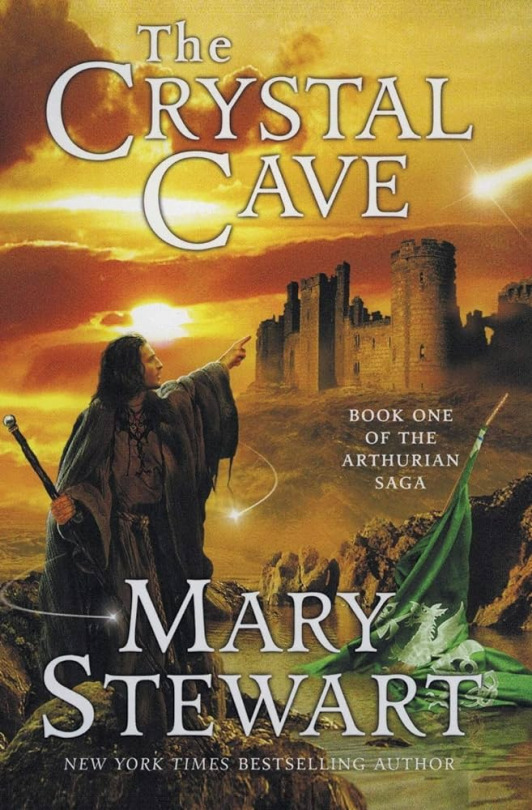
II/ Wizards and witches
The fantastical elements within modern rewrites are often embodied in the most visible way by a few key characters. First and foremost among this magical cast is, of course, Merlin the enchanter, but also regularly the bard Taliesin, despite his lesser presence within the Matter of Britain. Taliesin indeed only appears obviously tied to Arthur within the Welsh sources, especially “Preiddu Annwn”, where he is part of the expedition led by Arthur to steal away the cauldron of resurrection from the Otherworld. We can make the hypothesis that is it because of the historical rewrites of the Arthurian legends that the character of Taliesin gained such an importance, since it is in the Welsh sources that he is most frequently seen, sources that modern rewriters especially love due to judging them more ancient and thus more “authentic” and more Celtic than the chivalry romances and knighthood romans of France and England. Since Wales resisted more strongly to the Saxon invader, then to the Normand influence, modern novelists like to use the “Mabinogion” and the Welsh poems to historicize their Arthur. Taliesin usually stays within his traditional role of bard, in accord to the historical and bibliographical information we have about him. While quite brief, these information naturally designate him as the symbol of the Arthurian legend within a “realistic” rewriting, as a character between the history and the myth.
[In the “Hanes Taliesin” mainly, translated by Lady Charlotte Guest and which follows her “Mabinogion” translations, we discover the two births of Gwyon Bach/Taliesin, is exploits as a bard within the court of prince Elphin, and some of his poems. The historical Taliesin seems to have been a bard at the court of Urien Rheged during the 6th century, and the poems attributed to him were preserved within the “Llyfr Taliesin” (The Book of Taliesin). It notably contains the famous “Cat Godeu” (Battle of the Trees) and the previously mentioned “Preiddu Annwn”. These Welsh poems, like many others, were translated and published by William F. Skene within his “Four Ancient Books of Wales”]
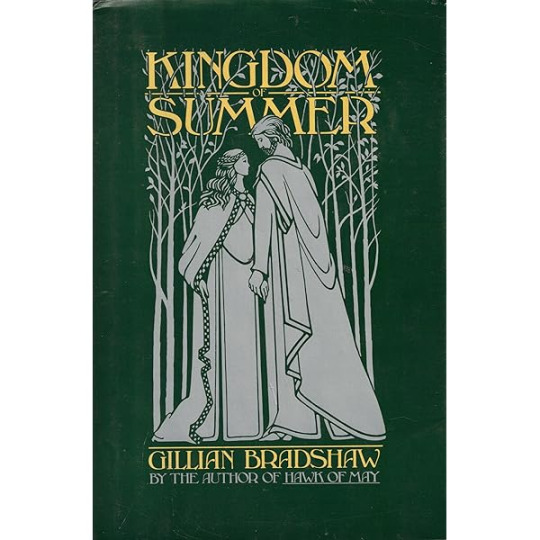
As such, within Fay Sampson’s “Daughter of Tintagel” cycle he becomes one of the five narrators that relate the life of Morgan. A first-person narration that give a voice to a secondary character of the medieval corpus is a fundamental trait of modern Arthurian literature : as such, we can hear Kai, Pelleas, Bohort, Rhys or Bedwyr, characters whose point of view is rarely given in legends, alongside the manifestation of more novel characters, such as Derfel, a shadowy warrior turned saint in the 6th century who narrates Bernard Cornwell’s “Warlord Chronicles”. [Respectively, Kai is heard within Phyllis Ann Karr’s The Idylls of the Queen and John Gloag’s Artorius Rex ; Pelleas within Stephen R. Lawhead’s Arthur and Courtway Jones’ In the Shadow of the Oak King ; Bohort within Dorothy Jane Roberts’ Launcelot my Brother ; Rhys within Gillian Bradshaw’s Kingdom of Summer ; Bedwyr within Catherine Christian’s The Sword and the Flame and Stephen R. Lawhead’s Arthur.]
Within Stephen Lawhead’s works, the role of Taliesin is more developed since he becomes the father, and so the precursor of Merlin (within Marion Zimmer Bradley’s, he is Merlin’s first incarnation). In his trilogy, the bard Talesin paves the way for Merlin, who will surpass his father in his role as the companion of the major hero, Arthur king of Britain. It is precisely this dimension that is often used by modern Arthurianists. [Stephen R. Lawhead wrote in reality five novels, the last two being a flash-back to episodes from between book 2 and 3. This Arthurian cycle is especially concerned with the questions of filiation, legitimacy and predestination. As such, Taliesin announces and foreshadow the coming of his son, a sort of messiah for the Britons, but Merlin himself works for the coming of Arthur, the savior of Britain as much on a spiritual level (the writings of Lawhead are distinctly Christian in tone) as on a political level. It is probably why we also see here a weird and exceptional element introduced, as Arthur is made the posthumous son of Aurelius, and not the bastard of Uther. Here Arthur is the product of an union blessed by the Church, and as such he descends from the first High-King, not from his replacement out of a “side-branch” of the family.]
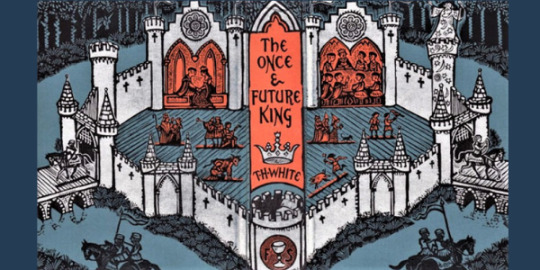
We also have to note that modern rewrites love to tell what happened during the life of characters in the form of prequels – in this case, the youth of Merlin, which is rarely detailed in the Middle-Ages outside of his birth and his encounter with Vortigern. It was the case within Mary Stewart, the first author who was concerned with the wizard’s youth, and who sems to have deeply marked modern Arthurianists, since the same pattern can be found in other novels, including those of Stephen Lawhead. This concern with “what happened before” is not exclusively Arthurian, and can be seen within other contemporary sagas – Star Wars, Indiana Jones, Blueberry… It is a tradition as old as the various “Childhoods” texts of the Middle-Ages. [Mary Stewart wrote “The Crystal Cave”, “The Hollow Hills” and “The Last Enchantment”. As a proof of the intertextuality of Arthurian novels, “the last enchantment” is an expression reused and exploited by Bernard Cornwell in the last part of his trilogy, where a dying Merlin, entirely devoured by his own student Nimue, preserves a “last enchantment” to allow Arthur and a few others to escape the battle of Camlan]
Be it Taliesin or Merlin, the first way the question of the magic implants itself within the narrative device is about the relationship between the king and his wizard. The magical element is thus tied to the political power, weighed down by a reality which, if not historical, is at least coherent. This heirloom is directly tied to the medieval sources, even if it is not obvious at first. The idea of an Arthur raised as a boy by Merlin owes much more to T.H. White’s “The Once and Future King” than to the medieval texts, where only a slow and complex evolution allowed the association of those two characters now seen as undividable. [White’s work is a set of five novels, first published separately, then compiled as one work in the 50s, and to which the last novel, The Book of Merlin, was added in 1977. This work is a precursor of all the rewrites that happened from the 60s onward, especially the first book that tells of Arthur’s childhood and his education by Merlin. It was a best-seller, and the adaptation of this first novel into an animated movie by Disney (63’s The Sword in the Stone) amplified its impact]. Indeed, within Geoffroy of Monmouth, Merlin and Arthur follow each other in the text… but never meet. It was within later rewrites, Wave, Lawamon, and in the French “Lancelot-Graal”, that the king and the enchanter will develop a more intimate relationship, culminating within Malory’s Morte Darthur. [In Geoffroy’s tale, the two characters at least never meet within the context of the tale. A doubt is allowed since in most of the manuscripts, Merlin makes a brief apparition at the very end of the “Historia”, where an “angelic voice” talks to Cadwallader, telling him that “God wishes that the Britons stop ruling within Britain until the moment that Merlin prophesized to Arthur” ; this sentence implies that Merlin might have been the king’s prophet, a role that will become more and more obvious in later rewrites]
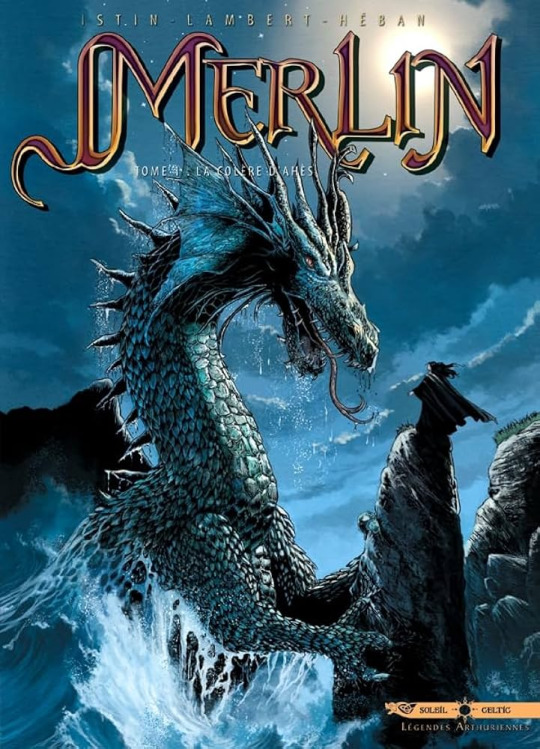
This is due to the two characters, Merlin and Arthur, originally belonging to two distinct traditions. Once they became connected thanks to Geoffroy’s Historia Regum Britaniae, the two characters got closer and closer, and gained many interactions, just as Merlin’s interventions became more and more fantastical. This is very clear when we look at an episode shared by all the medieval Merlinian tales: the moving of the stones of Ireland to create Stonehenge. Within Geoffroy’s, it is a mechanical process. Within Wace, an unexplained way. Finally, within Lawamon, it becomes a powerful spell that makes the stone “as light as feathers”. Modern authors follow this tradition and often reuse this episode, or a similar one, in what we can call “the motif of the dancing stones”. In the same way, within Lawhead’s novel, a child Merlin proves his powers to an assembly of druids by making the stones of a cromlech levitate. Stonehenge plays an important role for Cornwell: it becomes the place of a ghost-filled ceremony during which Merlin gives Excalibur to Arthur. Even among comic books, Merlin makes stones dance before amazed mortals. [It is within the first volume of the BD series “Merlin” by Jean-Luc Istin and Eric Lambert, “La colère d’Ahès” (The Wrath of Ahès). The dancing stones of Istin and Lambert are quite similar to the ones described by Lawhead, and the scenarist confessed having read the “Pendragon Cycle”. We find in this “Merlin” the same habt of syncretizing religions as within Lawhead’s works (father Blaise is a former druid, and offers Merlin as a symbol of the union of religions).]
We find back here what we said before: the historicized Arthurian literature of the 60s-80s greatly deprived the medieval text of their fantasy, and since the 80s-90s we have a slow re-appropriation of the medieval magic within novels that still, however, wish to be historical. In other terms – the stones are dancing again, but they are always dancing in a mentioned 6th century.
Before Lawamon, Merlin only acted during the lifetime of Aurelius and Uther, before disappearing for no reason after Arthur’s birth. However, the encounter between those two historical characters was too tempting to be avoided, and we can see a true shift between Geoffroy and Malory (for example), which today leads to the many tales in which Merlin acts as the teacher, tutor, or even adoptive father of Arthur. This filiation is helped by two elements. On one side, that is an elliptic moment covering Arthur’s childhood in medieval texts, and we go from him as a baby to him as a young fifteen-year old king. [We find within Lawamon the beginning of an explication: child-Arthur was raised by elves at Avalon. This idea was reused by Parke Godwin within the novel “Firelord”.] On the other hand, we can see that all of his next of kin die around the same time. In front of this absence of parents, it is very tempting to remove Ector (the father of Kay and the tutor of the royal child in the tradition) and put in his place a more familiar and impressive character, Merlin the wizard.
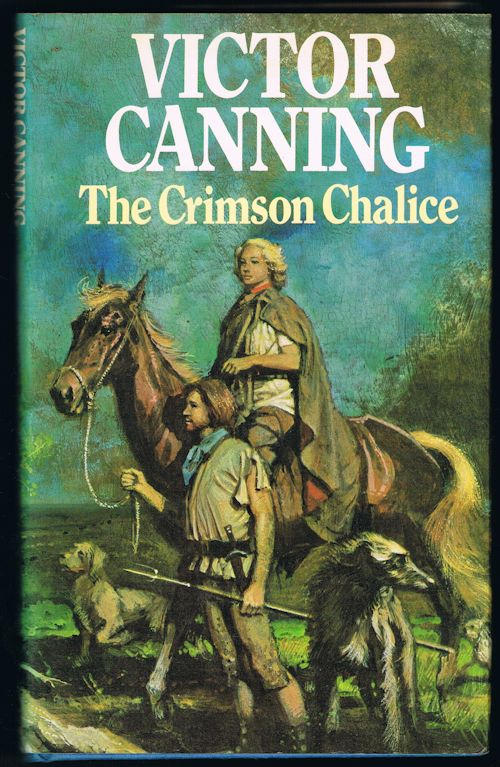
We talked before of the habit of “prequels”: the cyclical temptation of modern novels, which in a way mimics the Arthurian medieval tradition of a condensed and fractioned writing of the whole Arthurian legend (usually in three volumes), favorizes the writing of the origins, of the “before Arthur”. The introduction of Merlin, but also of Taliesin, proves this attraction for what Anne Besson calls an “Arthurian prehistory”. For Stephen Lawhead, the link between the various generations (Taliesin, father of Merlin, Merlin spiritual father of Arthur) insists upon the greatness and the predestination of the king of the Britons, the bearer of Light. Even when the Arthurian tale is limited to a single novel, it is not unusual to see it begin with the generation before Arthur: it was the case with Victor Canning’s “The Crimson Chalice”, where a third of the novel follows the events that led to Arthur’s birth (even though here Arthur’s parents are named Tia and Baradoc, and bear no resemblance to Igraine or Uther).
To all the reasons described above, we must add the fictional temptation of having characters coexisting to allow a powerful confrontation. But this temptation also bears a prevalent trait of the modern Arthurian fiction, and of its dialogue with the sources. Indeed, it is not uncommon to see a rearrangement, to various degrees, of the links that traditionally unite the characters. As such, in most sources Ygerne is the wife of Gorlois and the mother of Arthur, but she can be his half-sister and the mother of Medraud within Rosemary Sutcliff’s “Sword at Sunset”. The same Ygerne becomes Gorlois’ daughter, not his wife, in Stephen Lawhead’s work, as the author plays with the writing of the myth, has his Merlin-narrator laugh about the mad rumors that circulated about the siege of Tintagel “I have even heard it said that Ygerna was Gorlas’ wife – Imagine that!”). The marvelous does not escape this kind of more-or-less extreme shifts: the case of the female characters, of their relationship to magic, and of their role within history is especially revealing.
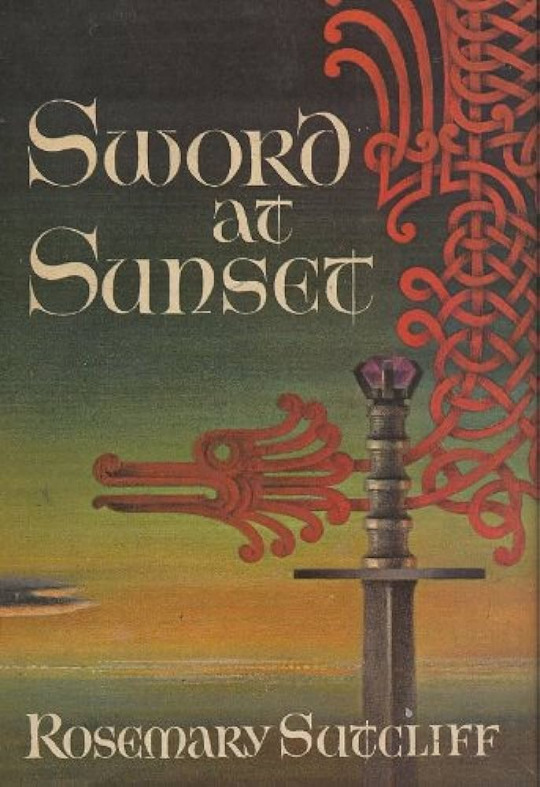
#arthuriana#fantasy#arthurian novel#fantasy novel#arthurian literature#translation#merlin#king arthur#taliesin#magic#arthurian rewrites#merlin the enchanter
14 notes
·
View notes
Note
top ten fantasy books and you can't say lord of the rings or the hobbit, GO
How could you do this to me?! You’ve knocked out my top 4!! But I’ll try…
1. The Last Unicorn by Peter S. Beagle
2. The Silmarillion (loophole!!)
3. Howl’s Moving Castle by Diana Wynne Jones
4. The Horse and His Boy by C.S. Lewis
5-7. The Cruel Prince trilogy by Holly Black (is this cheating?)
8. Till We Have Faces by C.S. Lewis
9. The Bishop’s Heir by Katherine Kurtz (only ranking this low bc I haven’t caught up on the other ones yet and it’s been too long since I read them to rank them all!)
10. Taliesin by Stephen R. Lawhead (haven’t read the other two books and I HATE the ending, which is the only reason it’s ranked so low. Would totally be higher if he didn’t RUIN IT at the end)
#rankings subject to change bc i love them all…..it’s so hard to choose an order after the first 2!#manti!#asks
4 notes
·
View notes
Text
Kind of appreciate that book two of this trilogy I'm rereading, set 10 years after the first book, spends page time to say that the horse the protagonist rode and bonded with in book one is still alive, just too old to go on this adventure, but that's okay 'cause he's getting extra carrots and treats in his retirement
2 notes
·
View notes
Note
Do you listen to any specific music when you write fics ? Any recommendations ?
Same with books, do you have any favorite atm and do you have any recommendations ?
You’ve also talked about some fanfic ideas, how far into production are they? Are they almost done or are they still being tweaked ?
What is your fave HIGNFY season and for what reasons ?
Ooh! Thanks for the ask, anon! Let's just hope my answers will be at least slightly interesting, haha. Probably not, but I like going on about random stuff...so thanks again ;)
I usually don't listen to music while I'm writing (but I do need some background noise and for some reason people talking in English works best, so I often put on BBC News or something lol). But there are some occasions where a certain song just reminds me a lot of a fic because of the lyrics or general vibe, and in that case I sometimes listen to that song on endless repeat during writing. But, er...my music taste isn't really anything to brag about. I'm mostly into classical music, metal, Jpop/Kpop and I recently started listening to the Beatles. Anyway, I don't think I can recommend anything, sorry 😅
I've been reading mostly non-fiction books about British politics this year and some of them were really good, but...that might not be this interesting, so I won't start nerding out about my fave politics books, haha. As for some more general recommendations, here are some of my more recent fiction favourites I could think of off the top of my head (and I'm doing my best not to mention only very obscure stuff & classics here :D):
- the entire Shardlake series by C.J.Sansom
- Snow Country by Yasunari Kawabata
- the Dublin Trilogy by Caimh McDonnell
- Jonathan Strange & Mr Norrell by Susanna Clarke
- and I really enjoyed the Bright Empires series by Stephen R Lawhead earlier this year...but the end was a bit unsatisfying so idk if I would really 100% recommend it.
As for fics, when I have a more or less good idea I usually start working on it immediately, so that's why I've got quite a few WIPs in different states of completion (about 12 or so). Apart from my ongoing series I'm mostly working on two HIGNFY fics (one one-shot and another really long multi-chapter one...I think I mentioned both of these without any details though) which will be pretty silly :D And these are taking up most of my writing time, so...the shorter one will be finished soon. No idea about the long one though, I never plan my plots in advance so I honestly can't say where this will go, haha. Anyway, both of them are so much fun to write and I'm looking forward to posting them, so...I'm having a great time :D
My favourite HIGNFY season...I remember that I really liked S6, but I don't know if there was a special reason 🤔 And the most recent S66 was also really fun, I think. Other than that...obviously the ones with lots of great Paul looks/outfits are the best, like S4-S8 S14, S16, S19...in short, way too many. Sorry 😅
2 notes
·
View notes
Text
No offense, Mr. Protagonist, but I don't know how much it's actually "she can barely cope with normal life" vs. "she can barely cope with the combination of normal life and you". I'm putting 'she gets a working knowledge of the premise before you see her again' at about 70%, and 'she somehow directly saves your bacon' at 80%.
2 notes
·
View notes
Note
7 & 39 and would also love a book rec if you please
7. a book you did not finish
Already answered here, so I'll give you #8 instead: a book you finished in one sitting
Sonali Dev has a series where she re-tells Jane Austen novels with a modern Indian-American twist. I believe I have finished each of them in one sitting, or very close.
Pride, Prejudice, and Other Flavors
Recipe for Persuasion
Incense and Sensibility
The Emma Project
39. a book featuring your favourite character
Well, the 4-book series I mentioned above of course!
And also Taliesen, which is book 1 of Stephen R. Lawhead's Pendragon Cycle series. It is a telling of the Arthurian legend that focuses on the ancestry of Merlin. I read it as a teenager and it made me absolutely obsessed with King Arthur.
A recommendation just for you
The Starless Sea by Erin Morgenstern. Sometimes it’s hard to imagine you will like an author’s second book as much as the first. Not a problem here. I was enraptured.
Also The Poisonwood Bible by Barbara Kingsolver.
3 notes
·
View notes
Text
"I tell you the truth, a man may not make himself king; only the blessing of him who holds the kingship can elevate a man to that high place. For sovereignty is a sacred trust that may not be bartered or sold; still less may it be stolen or taken by force."
Stephen R. Lawhead, The Paradise War
3 notes
·
View notes
Text
Question (from my friend) for the polyglots!
How do other languages refer to being in “the zone”, having to “grind”, or describing when things “click”. These just seem like very odd ways to refer to very essential concepts, the only example I know of in another language would be Stephen R. Lawhead describing the awen the descends on warriors and bards in his Pendragon Cycle. The way he describes it, sounds very much like “the zone”, but obviously way more badass.
@apesoformythoughts, @oldshrewsburyian, or anyone else who may have knowledge on this point, please share!
(Having not read Lawhead in a minute, I’m glad this friend specified warriors AND bards, or I’d think it was another word for a bloodlust/berserking situation)
5 notes
·
View notes
Link
Check out this listing I just added to my Poshmark closet: Dream Thief By Stephen R. Lawhead.
2 notes
·
View notes